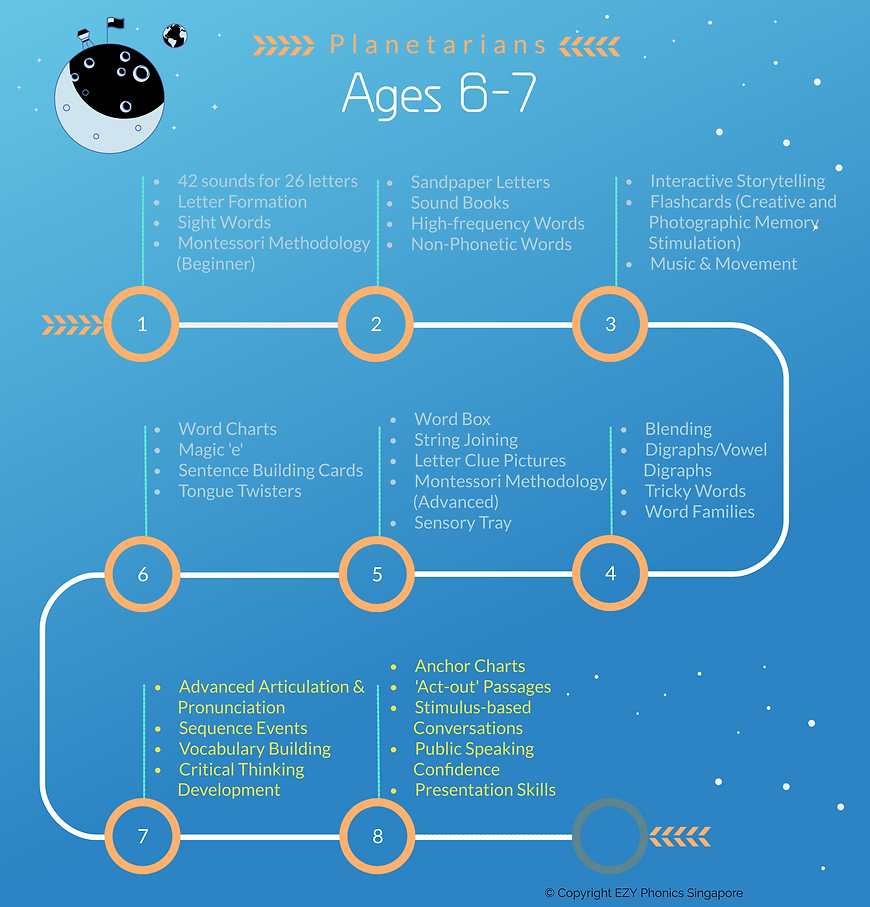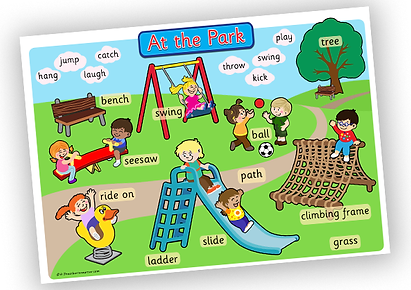Our Planetarians (Age 6)
-HQ.png)
From developing friendships to comprehending words and passages, there’s a lot to learn when beginning primary school. Children learn a lot through play—but often, literacy skills (reading and writing) are taught in a very systematic way, from the first days in nursery right through their first years in primary school. It can be an unsolvable puzzle to work out how best to support your child through the pre-primary school stages of reading, writing, speech and expression.
At the Planetarians level, we prepare our students for formal primary school by greatly enhancing their reading, spelling, writing and expressive fluency ahead of time. This significantly helps them read and understand with speed, accuracy and expression. Our Planetarians gain the ability to read with inflection and energy that also symptomatically translates into expressive writing skills. Discover what to expect for your child at this crucial development level, how we help them and how we remain invested in fun while we do it.
-
Critical Thinking Development
Learning to think critically is a crucial aspect of a child's holistic development, helping them make sense of the world around them. It helps them to seek answers to their own questions, make healthy judgements and to figure things out if they don’t make sense. We use a variety of techniques to incubate critical thinking in our students, which include encouraging agreement and disagreement in expressive discussions, asking why, discussing implications of actions and developing the skill of active listening.
-
Articulation & Pronunciation
Speech articulation and pronunciation is about how we form words, how we say those words, and how well people around us understand the words we speak. Many children in Singapore struggle in this area—as a consequence of 'Singlish' that is readily spoken. Children often mimic what they hear and this eventually leads to further degradation of a strong command in Oral English. We strive to develop our students with a strong foundation, anchoring them with correct articulation and pronunciation prior to primary school entry,
-
Sequence Events
'Sequence Events' is one of many advanced techniques that we employ to increase our Explorers' ability to comprehend what they read. This guides them to identify the components of a story—the beginning, middle, and the end—and also provides us with an active listening feedback loop to determine their ability to recite the events in the order in which they occurred. This will assist them with latter-level comprehension, increase their ability to organize information and ideas efficiently and serve as a critical component for problem-solving across other subjects.
-
Vocabulary Building
The more words a child knows, the more they are able to descriptively comprehend what they're reading or listening to. We introduce tons of unconventional words for our inquisitive Explorers in all our programmes. We infuse these words by first; providing a child-friendly definition of the word itself, then using an entertaining example of our own and followed by nudging them to create an example of their own. We've discovered that this is an incredibly successful technique for building vocabulary in children.

-
Public Speaking Confidence
Public speaking can be an incredibly frightening and stressful experience not only for children, but for adults alike. The inherent fear to speak with unwavering openness typically originates from a fear of failure or a distorted fear of external perception. We guide our students through their fears progressively, beginning with describing characters and stories with what is already well known to them. Then we move on to story telling cards—with guided speaking phrases and curiosity games that builds their trust mechanism through inquiry.
-
Anchor Charts
Anchor Charts serve as a profoundly powerful visual reminder for children to remember what they have learnt. We recommend and use them often during our group learning recaps, guided reading lessons and our intervention programme.

-
'Act-out' Passages
A key feature of our programmes is that we focus beyond mere phonological skill development. Our mission is to develop our students holistically in reading, speaking, writing and expression. True comprehension requires our students to combine what they read with their own prior knowledge to construct deeper understanding. We use a variety of 'Act-out' books and nudge our Young Explorers to act out the passages!
-
Stimulus-based Conversations
Stimulus-based conversations, or experience-led conversations, is an essential component of primary school oral communications. Students are typically shown a picture and are invited to discuss about it in relation to other topics (eg. a picture of a sports car could lead to a discussion about safe driving habits). Our programmes encourage spontaneity in responding to stimulation and the confidence to express a different view. In addition to this, the use of stimulus allows pupils to tap on their experiences which also improves written expression and creativity,

